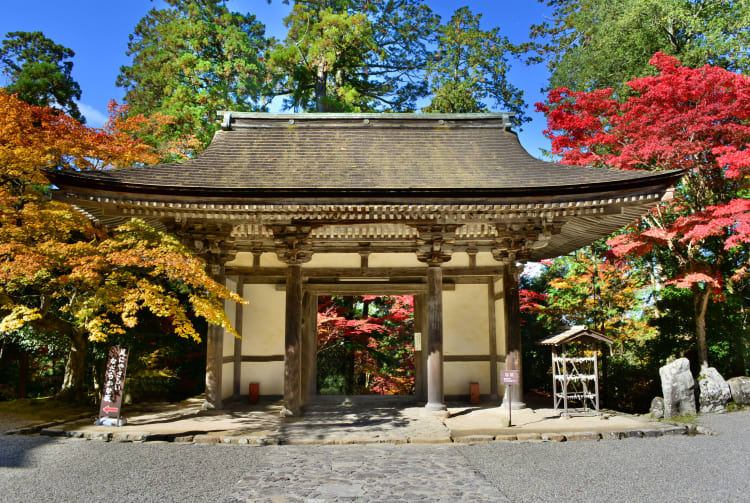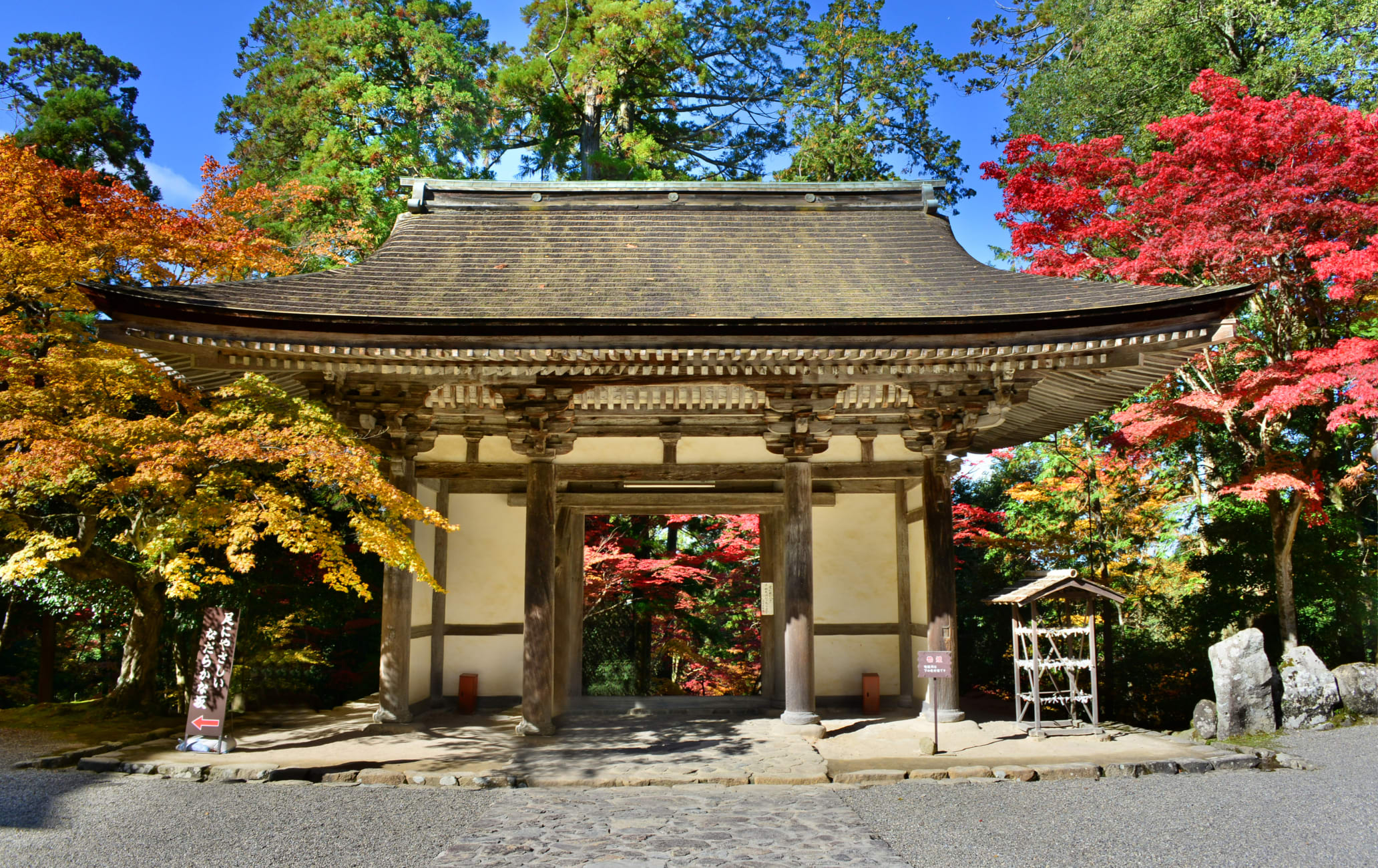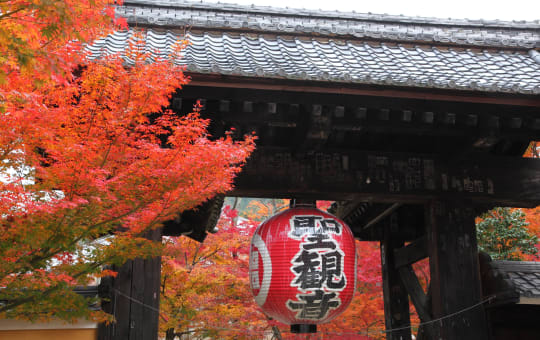You can see fall foliage and cherry blossoms at the same time at this National Treasure
Saimyoji Temple's main temple building was named Japan's first National Treasure, and the temple has been around since the Kamakura period (1192-1333). It draws a lot of people in the autumn to see fall leaves and cherry blossoms on display at the same time.
Don't Miss
- Colorful paintings in the pagoda
- Cherry blossoms among autumn leaves
- Examining the totally nail-less architecture
How to Get There
In November, you can get to the temple by train, then by taxi or by shuttle bus.
You will need to take a taxi from Hikone or Kawase station on the JR Tokaido Line, or from Amago Station on the Omi Tetsudo Line.
During peak autumn in November, the Koto Sanzan Shuttle Bus runs between the three Koto Sanzan temples and Hikone and Yokaichi stations. You can start your tour at either Hikone or Yokaichi Station.
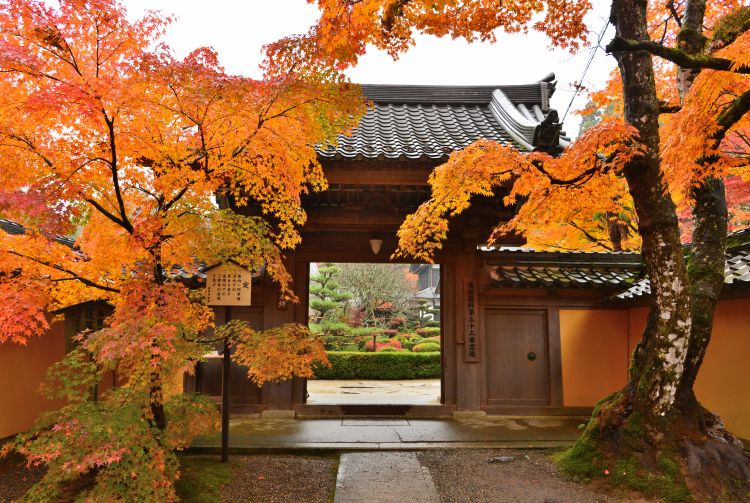
Part of an elite trio of Tendai temples
Along with Kongorinji and Hyakusaiji temples, Saimyoji is one of Shiga's famous Koto Sanzan temples belonging to the Tendai sect of Buddhism. The kanji for Koto Sanzan make it clear: the temples sit on the three mountains on the east side of Lake Biwa .
A history of survival
Saimyoji Temple was built in the Kamakura period (1192-1333) and remains one of the best examples of architecture from that time. It was built without nails.
The main temple was Japan's first designated National Treasure. The three-tiered pagoda, with its colorful paintings, is one as well. Both survived attempts by local warlord Oda Nobunaga to burn them down in 1571 during the Warring States period.
Over 1,000 maple trees
Saimyoji Temple includes Horaitei Garden, which has more than 1,000 maple trees. In mid- to late November, the crimson leaves carpet the grounds in spectacular fashion.
Scattered among the maples are the unusual fudanzakura cherry trees, which bloom in autumn. This is one of the only places in the world where you can see sakura cherry blossoms and autumn foliage at the same time.
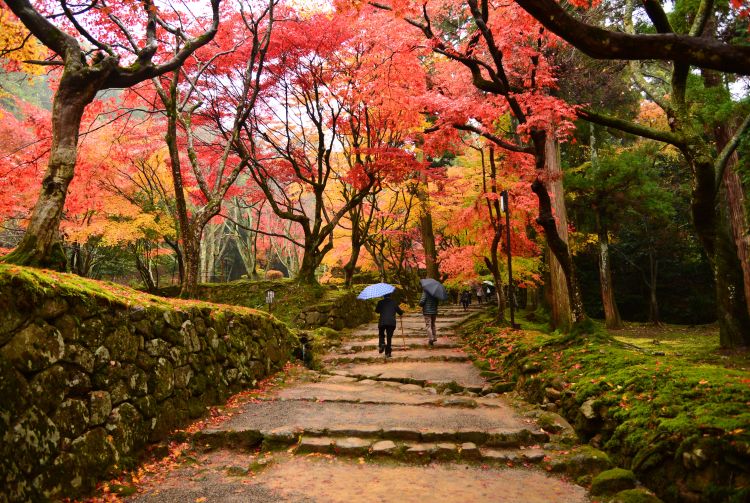
Autumn foliage at Saimyoji Temple




















































